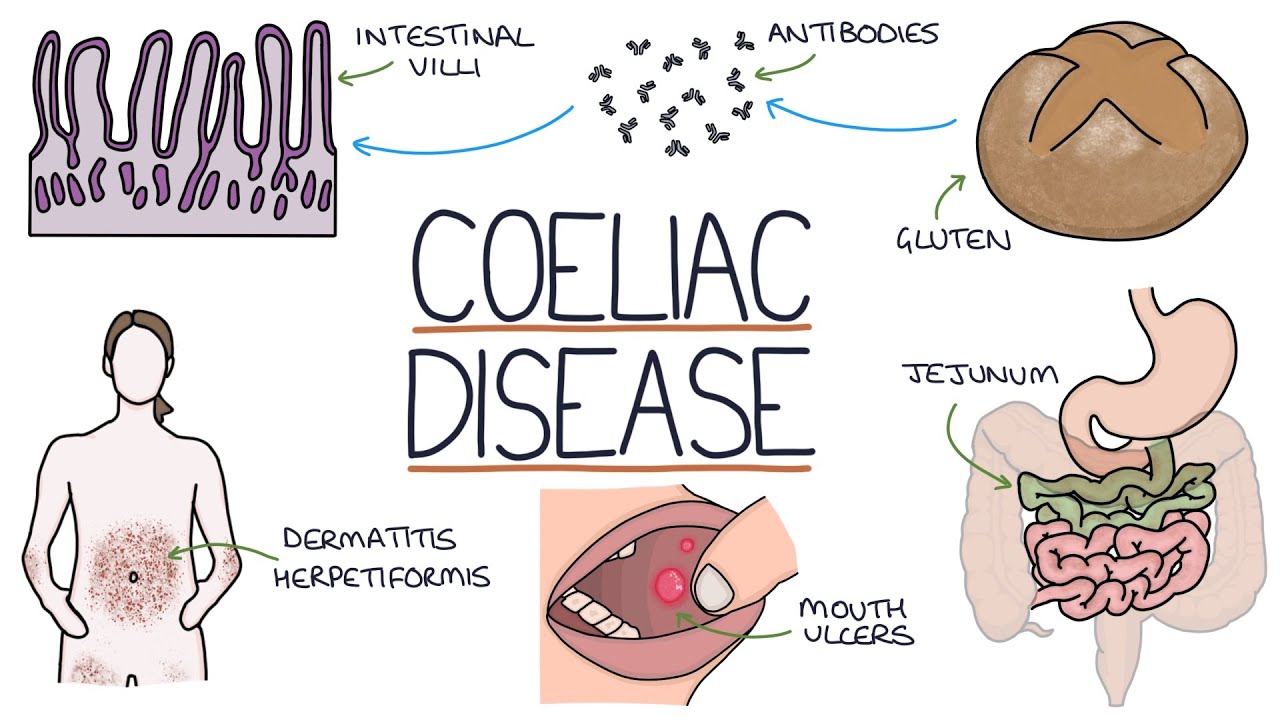What is celiac disease?
Celiac disease is an inherited autoimmune disorder that causes a reaction in your body to the protein, gluten. Gluten in your digestive system triggers your immune system to produce antibodies against it. These antibodies damage the lining of your small intestine (the mucosa). Damage to the mucosa in your small intestine impairs its ability to absorb nutrients from your food, causing nutritional deficiencies.
Gluten is a protein found in grains — particularly wheat, barley and rye. These grains, especially wheat, make up many of the staple foods of the standard Western diet, from breads and cereals to pasta and baked goods. Besides that, gluten often appears as an additive in food products where you wouldn’t expect to find it, such as sauces, soups and packaged foods. Beer is usually made from barley or rye.
How does celiac disease affect my body?
Celiac disease affects your small intestine. This is where most of the nutrients from your food are absorbed, including proteins like gluten. But when you have celiac disease, gluten in your small intestine triggers an immune response. Your immune system sends inflammatory cells and antibodies to destroy the gluten molecules. These cells damage the mucous membrane lining your small intestine (mucosa).
The mucosa that lines your small intestine is vast but is scrunched up into many folds and fingerlike projections called villi. If you stretched it all out, it would cover a tennis court. The folds and projections increase the surface area in order to absorb as many nutrients as possible during digestion. But immune cells triggered by celiac disease erode and flatten these projections, diminishing the surface area.
.png)
